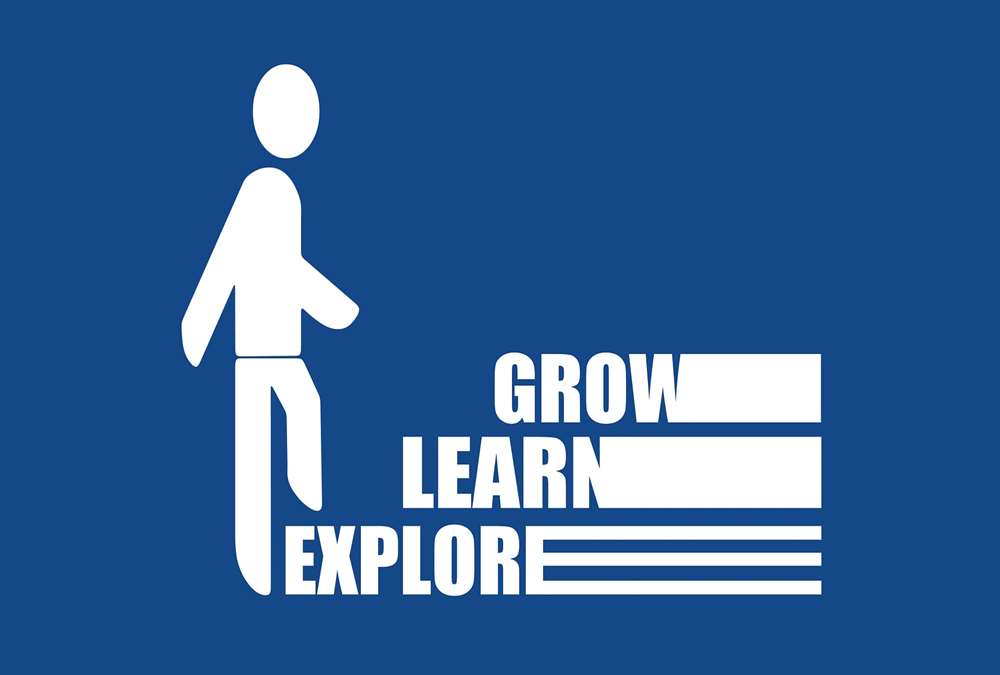- Home
- Business Processes
- Industry Knowledge
- Aerospace Industry
- Automotive Industry
- Banking Domain
- BFSI Industry
- Consumer/ FMCG Industry
- Chemicals Industry
- Engineering & Construction
- Energy Industry
- Education Domain
- Finance Domain
- Hospitality Domain
- Healthcare Industry
- Insurance Domain
- Retail Industry
- Travel and Tourism Domain
- Telecom Industry
- Leadership Skills
- eLearning
- Home
- Leadership
- Career Management
- Evaluating Your Career Interests
Evaluating Your Career Interests
Want to find out what you are best at when it comes to proactively building your career? What are your real interests? The first step in career planning is reflecting. Reflecting upon your own self, to be more self-aware, and then following your dreams with both your heart and mind. Here is an opportunity to begin exploring yourself. At the end of the process, you will have a far better understanding of your desires than you have currently.
The first step in career planning is reflecting. Reflecting upon your own self, to be more self-aware, and then following your dreams with both your heart and mind. Here is an opportunity to begin exploring that age-old question, ‘what do I want to do in my life?’ Try answering these questions and at the end of the process, you will have a far better understanding of your desires than you have currently. Try to introspect, as the answers to these questions are buried deep within you. Some questions might lead to the same answer, but we encourage you to try answering all of the following questions honestly, even if the answer seems to be the same!
Q1. What are my talents and strengths?
What are your top talents and strengths? What is it that you are good at? What is it that you enjoy doing and are passionate about? The talents you achieve most with? The activities you get the most satisfaction from?
Q2. How do other people think of me?
What is my perception of other people? What am I known for? What is it for which they generally come to me, seek my help or advice?
Q3. If money were no concern, what I would be doing?
While answering this question, think of no boundaries. Imagine you have the power to accomplish anything and you don’t have to worry about earning money to lead your life. In such a situation what you would do?
Q4. When have I been most committed, passionate, and enthusiastic?
Reflect on your life to date. When you have been most committed? When did you love working on something so much that you lost track of time? When you got satisfaction from some activity? When was the time you felt very committed and passionate about some task?
Q5. When have I been most creative?
Reflect again to remember when your creativity has been on its peak. When you created something that you enjoyed most? When have you enjoyed your work most?
Q6. What do I consider to be my greatest accomplishment?
What accomplishment you value most. Is there anyone moment in your life that you felt was your greatest achievement? Your answer can be related to any phase of your life, schooling, work, or personal life, as long as you view it as a personal achievement.
Q7. When do other people consider being my greatest accomplishment?
When other people think you have been the most successful. When you got a lot of recognition from others for doing something? What is it that you think your family, friends are proud of you?
Q8. When I have been most sure of myself and my decisions?
What were the circumstances when you were most sure of your decisions and were willing to make those decisions? Is there a situation where you have taken a very strong stand? If yes, what were you trying to achieve?
Q9. What talents was I relying on, and using, in these situations?
What were the talents that you were using were confident of in situations from Q2 to Q8. Were there some interests or values that you were following? Also, add any talents that you might have discovered using any psychometrics tests.
Q10. What are my top 5 interests or talents?
Based on your reflection on questions from 1 to 9 identify your top 5 key talents or interests that matter most to you and you consider yourself to be good at.
Download the template provided here free of cost and use that to explore these questions. The five top talents will be used in a later exercise to understand your career options and developmental plan.
Explore Technofunc Toolkit
Technofunc resources aim at equipping you to leverage technology as well as learn critical business application processes along-with system integrity and security, systems audit, project management, and other key methods widely used today that helps in the integration of business processes and practices in tune with the requirements that are driven both by business, globalization, and legislature. We help you gain expertise in both technical and functional skills, which when applied collectively comprise of professional competence and excellence.
Given below are the different technofunc resources to start building your technical leadership skills:
Build Domain Skills
- Aerospace Domain
- Automotive Domain
- Banking Domain
- BFSI Domain
- Consumer / FMCG Domain
- Chemicals Domain
- Engineering and Construction Domain
- Energy Domain
- Education Domain
- Financial Management & Business Dynamics
- Global Markets Domain
- Hospitality and Leisure Domain
- Healthcare Domain
- Insurance Domain
- Technology Domain
- Retail Domain
- Travel Domain
- Telecom Domain
Related Links
You May Also Like
-
In the early years, most jobs were skill-oriented, and with the development in lifestyles and technology, the current jobs are knowledge-oriented jobs such as management, accountants, design, or computing. Career paths encompass varied forms of career progression and this article discusses how we can build a fulfilling career? Learn here about career paths, industries, and opportunities for gaining experience in the field of your choosing.
-
Functional skills are the core competencies that can be transferred to different work areas like understanding of finance is independent and a finance expert can comfortably adapt to a manufacturing or service industry. Functional skills are obtained by understanding the various processes and the principles applicable to a business function. Functional experts are in great demand as they are specialists and required to manage the business processes like human resources, operations, or finance.
-
Time management is the process of planning and exercising conscious control of time spent on specific activities, especially to increase effectiveness, efficiency, and productivity. The best time management techniques improve the ways you work. Time management refers to managing time effectively so that the right time is allocated to the right activity. Learn more about the five steps for effective time management viz. study, identify, analyze, decide, and implement.
-
“Level 5 Leadership”, this term was coined by Jim Collins in his book “Good to Great” and it is all about achieving "Greatness" as a leader. This article will explain what we mean by Level 5 Leadership and what the characteristics of a Level 5 leader are. What it takes to achieve greatness as a leader, and what are the steps and strategies that one can use to move up to this top level of leadership.
-
How often do you have a plan for how you are going to spend your day but you aren't able to complete the tasks on your plan because of unimportant tasks, interruptions, or your own procrastination? Wouldn't it be great to be able to manage your schedule and your time while avoiding, or at least controlling, these time stealers? Learn the strategies to manage your schedule while still handling interruptions and demands on your time.
-
Authentic leadership is an approach to leadership that emphasizes building the leader's legitimacy through honest relationships with followers which value their input and are built on an ethical foundation. The authentic leader acts upon his or her values and beliefs, and inspires others to do the same, is committed to know and develop oneself. Are you committed to developing yourself; know your motivations and the purpose of your leadership? Read this article to know more about authentic leadership style and discovering your authentic self.
-
In our present Hitech scenario, society is changing very fast. What are the skills that are most relevant for leaders in relation to the changing economic environment? Leaders need to develop skills to drive innovation and change in order to play a more central role in their organizations’ activities. How do managers accept the change and meet business expectations by becoming a key figure in driving change and innovation?
-
What are some of the smartest things you can do in your early career that can help you become successful? The more you challenge yourself early on and gain a multitude of experiences and skills, the more successful you'll become down the road. In this article, we have compiled our best career advice including tips from career and recruitment experts. Here are some important tips to keep in mind as you plan your education and training, your career, and your life.
-
Tools for Developing Your Team
If a manager has too many weak spots in the talent of the team, the ability to empower the team members to independently execute the project is impaired. Assignments fall behind schedule or stretch out because the needed skills or knowledge are not in place when needed. To successfully execute important projects, hiring talented people, and increasing the talents of existing staff are most important.
-
Evidence of the medically damaging symptoms of work stress necessitates applying the treatment of stress management. Stress management is increasingly drawing the attention to the management experts not only as a remedial measure but also as a way to resource management. If the workplace can be made a little more lovable the increase in the achievement of the organization may be much time more. If group stress can be removed by introducing group discussions and recreational facilities a long-lasting team spirit may get developed.
Explore Our Free Training Articles or
Sign Up to Start With Our eLearning Courses

About Us
Learning
© 2023 TechnoFunc, All Rights Reserved










